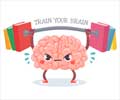Discover the power of intermittent fasting to defy aging and boost brain health.
- OXR1 gene identified as a guardian of brain health and longevity
- Cellular mechanism showcases how dietary restriction slows aging
- Intermittent fasting emerges as a powerful strategy for neuroprotection and increased lifespan
Buck Scientists Identify How Dietary Restriction Slows Brain Aging & Increases Lifespan
Go to source).
The OXR1 Gene: Guardian of Brain Resilience
Published in the journal Nature Communications, the study emphasizes the significance of the OXR1 gene as a critical factor in promoting brain resilience against aging and neurological diseases. According to Kenneth Wilson, a postdoctoral student at the Institute, the prevailing notion often associates dietary restrictions with effects on the digestive tract or fat accumulation, overlooking its profound impact on the brain. "As it turns out, this is a gene that is important in the brain," Wilson notes.Intermittent Fasting: A Pathway to a Healthier, Longer Life
The research team delves into a detailed cellular mechanism that elucidates how dietary restriction can effectively delay aging and impede the progression of neurodegenerative diseases. Employing fruit flies and human cells for their study, the researchers identify potential therapeutic targets that could be leveraged to combat aging and age-related neurodegenerative disorders.Did You Know?
Intermittent fasting enhances OXR1 gene expression, safeguarding the brain from aging.
The study was initiated by scanning approximately 200 strains of flies with diverse genetic backgrounds, raised on either a normal or a restricted diet. The researchers observed that the loss of OXR1 in humans resulted in severe neurological defects and premature death. In mice, an additional dosage of OXR1 improved survival in a model of amyotrophic lateral sclerosis (ALS).
Dietary Restriction's Cellular Magic: Delaying Aging
Further investigation revealed that OXR1 plays a crucial role in influencing a complex known as the retromer, comprising proteins essential for recycling cellular proteins and lipids. Dysfunction in the retromer has been linked to age-related neurodegenerative diseases, specifically Alzheimer's andThe findings indicate that diet plays a pivotal role in influencing the expression of the OXR1 gene. By opting for a reduced caloric intake, individuals can enhance the mechanism of proper protein sorting in cells, thereby contributing to the preservation of healthy brain function. As we unlock the secrets of longevity, it appears that the choices we make in our diet may hold the key to a healthier, more resilient brain as we age.
"In the choices we make about our diet, we may find the key to a resilient, youthful brain as we age."
Reference:
- Buck Scientists Identify How Dietary Restriction Slows Brain Aging & Increases Lifespan - (https://www.buckinstitute.org/news/buck-scientists-identify-how-dietary-restriction-slows-brain-aging-increases-lifespan/)
Source-Medindia
















